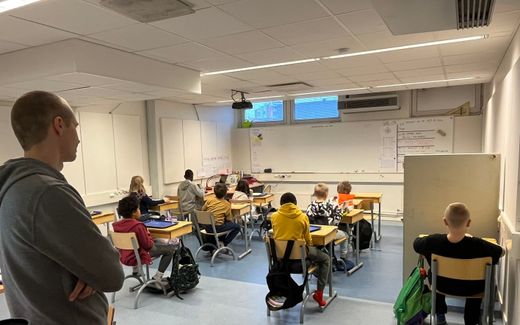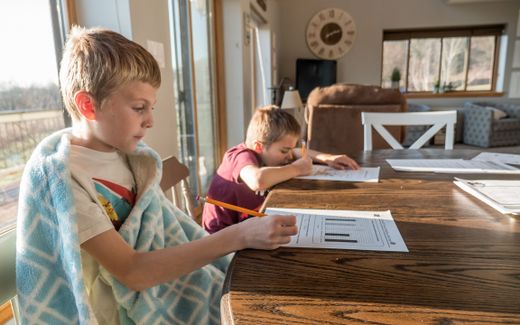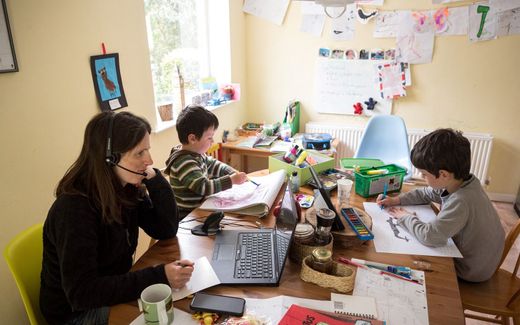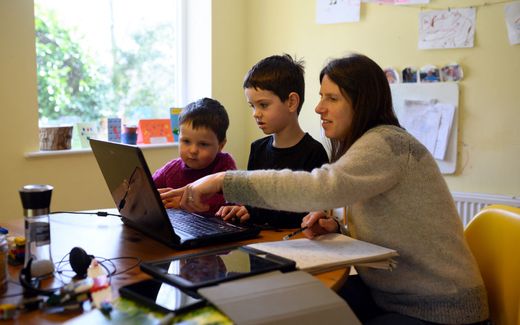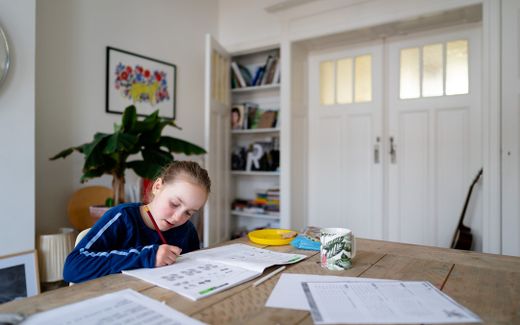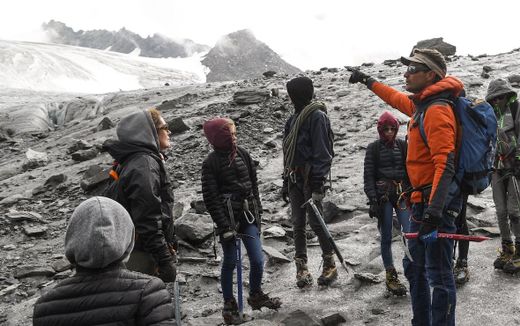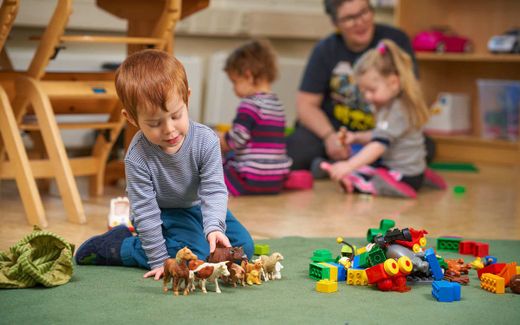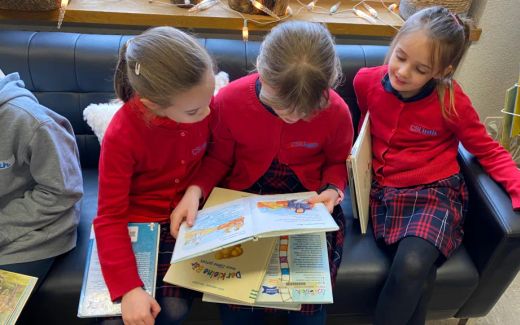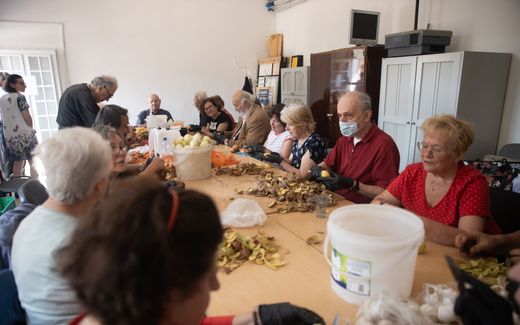How homeschooling started to grow in the Czech Republic
23-08-2024
Christian Life
Jitka Evanova, CNE.news
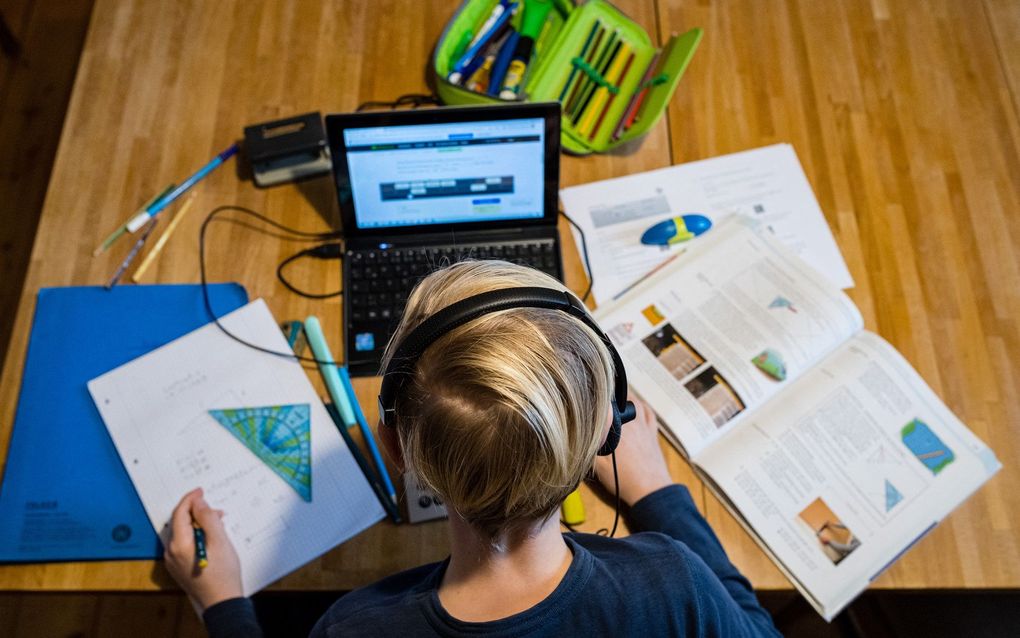
A schoolboy works from home in Halle/Saale, eastern Germany. Photo AFP, Jens Schlueter
Christian Life
More and more kids Czechia receive homeschooling. So are Jitka Evanova's children. This has been the way to let the twins flourish, writes Jitka just before twins go to a real school for secondary education.
I read the numbers. I panicked. It didn't look good. One high school had 336 applicants and would accept 30 students. The other was a little better with 106 applicants and would accept twenty. The last one was the same, accepting sixty out of 665 applicants.
Our twins have been working hard since last September, but so have thousands of other fifth graders who want to study at an eight-year high school. The places are limited, the entrance exams difficult and highly competitive. At least in Prague and other large cities in the Czech Republic.
Our children are homeschooled, so we enjoy the benefit of intensive test preparation in maths and Czech during 'regular' morning lessons while keeping all the afternoon free for after-school activities. It keeps us all healthy. And we are not the only ones taking advantage of homeschooling.

Legislation
The number of homeschooled children has been increasing since it was allowed in 2005 for primary school pupils in grades one to five. In 2007, there were 376 homeschooled children. Ten years later, in 2017, there were 2591 children. In total, that is 0.27 per cent of all primary school students.
The covid pandemic has accelerated the increase. According to the Czech Statistical Office, there were 3874 homeschoolers in 2019, 4559 in 2020, 5815 in 2022 and 6311 in 2023. This is only 0.6 per cent of more than one million primary school pupils, but the increase is still remarkable.
Most parents educate their children at home only until the end of the fifth grade (when they are around 11 years old). After this, they continue at eight-year high schools or the second level of regular primary schools.
Experiment
It took years before homeschooling became part of the Czech legislation. Christian families were involved in the start of the process, influenced by American Christian educators who came to Prague after the fall of communism in 1989.
Mr Bohumil Bulíř, a former director of a Christian Brethren school in Prague, was one of the key figures. He coordinated efforts with the Ministry of Education and pushed for experimental home education in 1998.
The experiment lasted five years. The Ministry of Education tried several times to stop the experiment, but to no avail, and it took another seven years before it was legalised by law.
Excited
The authorities were against homeschooling. Some experts even describe it as individual education. I think this is out of fear of insufficient socialisation of the children.
This attitude has slowly changed as experience with homeschoolers has grown. Yet, opinions still vary among teachers and practitioners.
Every homeschooler must be enrolled in a primary school where he or she is tested, usually twice a year. For the first three years, we were the first and only homeschoolers enrolled in our local school. We were the "odd ones" who were always asked why we did not send our children to school because "you are hurting your children by not sending them to school". We thought the opposite.
We changed a few times from the schools we had contact with. Eventually, we enrolled in a private Christian school that had a lot of experience with homeschoolers. The difference could not have been greater. Our children even became excited about tests instead of going to school in fear.
Influence
Czech social anthropologist Irena Kašparová homeschooled all her four children. In her book Guide to Home Education in the Czech Republic, she suggests that the state fears losing ideological influence over the growing population and is reluctant to give this power to parents themselves. She quotes a former Minister of Education who said in 2014 that homeschooling was "a breeding ground for extremism". Despite this unfavourable attitude from some, homeschooling was allowed in 2016 throughout compulsory primary education up to the age of fifteen.
Parents decide to educate their children at home for various reasons. My husband even pushed me to try it even before we got married in the late 1990s. As a teacher, he was convinced that each child could learn more and faster at home than in a classroom with thirty other children. I was reluctant at first, but we decided to give it a try.
Homeschooling gave us a wonderful opportunity to spend more time with our children exploring, (usually) having fun and being flexible. When it snowed in Prague, we took the opportunity to spend the day outside sledging and skating. I am grateful that our children did not have to spend hours online during the pandemic when Czech schools were closed for months (the longest in the EU), and distance learning was the only option.
Hectic
There are also other reasons for homeschooling, such as logistics. Parents may travel a lot for work, or they may live in a remote area where transport to school can be a problem.
It also makes sense for families with more children. "We did not want to lose our freedom to visit grandparents or go on trips when I was on maternity leave with our third child," says Katerina Granátová, a mother of five, and continues: "Our eldest daughter could read before she started first grade (at the age of six, ed.). We decided to try it for a year and liked it. There are many advantages. The mornings are not so hectic, we can spend a lot of time together, and the children have time for many after-school activities. But each year, we decide whether we continue. Our two oldest daughters are already in mainstream schools."
There are also religious families who wish to educate their children in a faith that is not taught in our education system, perhaps with the exception of a few church schools. Still, others have different ideas about education than the norm and want to educate their children in alternative ways that better suit their individual needs or interests. These are usually parents whose children are very gifted or have special educational needs.
Mrs Katerina Harmaning, a teacher and former director of a Christian community school, withdrew her son from a regular primary school in sixth grade because he was learning too quickly and was restlessly waiting for others. "Homeschooling gives us the opportunity to work in a rhythm that suits him. It also allows us to work on things more intensively than the regular 45-minute lessons at school," she says.
Her daughter goes to school because she is happy in a group of children and copes well with the traditional school timetable. "It is amazing when families have the opportunity to choose what is best for their children," she concludes.
Parent
It is not all bright and beautiful. There are also disadvantages. Mrs Kašpárková says: "Homeschooling is for every child, but not for every parent."
You need a friendly school, support from your spouse and it is also financially demanding – you give up a salary and pay a lot for various activities. Fortunately, you are not alone and you can contact other homeschooling families, take part in small parent-run community schools or organise joint programmes, excursions or trips.
Mrs Harmaning confirms: "As a teacher, I have the capacity to teach more children, so I have offered my skills to other families and taught five more children. It is very productive."
Just reminding myself of the benefits of homeschooling calms my panic. Hopefully, this will remain the case, although the number of homeschoolers is likely to continue to grow, and the state may not be too happy about it.
Related Articles

